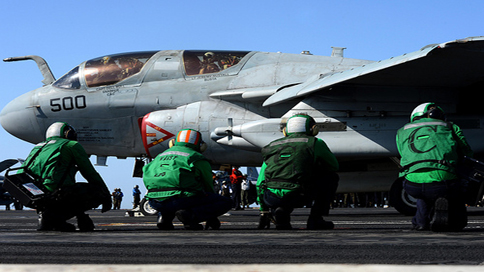
18 Dec Veterans learn to navigate a new culture: “The civilian world”
When I was first asked to write this article, I immediately wanted to share the plethora of lessons learned that I, and many veterans, had drudged through during our “transition:” things like having a process for documenting people you meet and following up with them; creating a three- to six-month transition plan that purposefully drives you towards your next career; or making sure that your values sync with your career goals.
Obviously, we can write an entire book on resumes and cover letters. Then there’s the fine-tuning: having a business “calling” card; making sure you take care of yourself; and networking, networking, networking!
After more thorough reflection, it hit me that while I had a lot of resources all over Mecklenburg County such as the NCWorks Career Centers, Patriots Path and the USO (United Service Organizations), just to name a few, helping me and other veterans, we were still struggling. Why?
As I was writing this article, I was reading one titled “Re-entering” for my daughter, who went to Uganda on a mission trip and was coming back to the States. It described what “re-entering” challenges she may face and advised on how to prepare for them. Then I had the “ah hah moment:” that’s exactly what military personnel transitioning go through!
As a veteran, you may have had culture shock when you went in, but you may also have culture shock when you come out. As you prepare to transition and conduct a job search, here are a few things to think about:
- Give yourself time to readjust; be patient with yourself and others.
- Expect the same areas of culture stress that you experienced in joining the military. Often, veterans have a more difficult time adjusting to being back at home than to being in the military.
- Recognize and accept that you are in transition and that “reverse culture shock” is a normal process of re-entry.
- Understand that it’s often difficult for those who have not been in the military to relate to you and your experience. There will be a few people who will take the time to listen to your “war” stories and who want to hear them. They are a blessing.
- It’s important for others to hear what you have to say, for their own learning as well as yours. Prepare a three-minute story (“elevator speech”) to share with those who only want a brief account. (They’re the ones who ask what was it like being in the military and then proceed to talk about the weather. Remember, the U.S. military population is only one percent.)
- Recognize that your family and friends may be under a great deal of stress themselves. Be prepared to counsel, comfort, pray with and bless them, as much as to receive their attention, care and counsel. Understand that the lives of your family and friends moved forward while you were in the military. They also have important stories to tell.
- Remember that the people who’ll understand you most are other veterans. Give them a call; share with them, swap stories and connect through places like Charlotte Bridge Home, USO and Wounded Warrior programs.
- When you enter a civilian career, you can encounter three types of people:
- Inconsiderate people, nice people and true people. (I won’t expand on the inconsiderate.) Nice people pinch your cheek and say, “Wasn’t that nice you went in the military?” Try not to have high expectations when telling these people about your military experience. True people are those who really care that you served and about what you’ve learned. These are the people who actually want to hear your stories! Leverage their connections!
- Finally, my best tip for job searching is to become a storyteller. Learn to tell short stories that capture your audience (human resources/hiring managers). Paint verbal pictures of your best achievements of your military experience.
And reach out to us at Charlotte Bridge Home for additional resources or to join a veteran’s job-search team!
 Paul Bill joined Charlotte Works and Charlotte Bridge Home in July 2015 as a veteran employment and education specialist following a successful career in business development consulting and training, most recently with Mastering Business Development Inc. (MBDi). Before joining MBDi, he served as manager, maritime business development for BAE Systems, Land and Armaments Sector. Bill is a 30-year retired commander and U.S. Navy Surface Warfare officer. He served on numerous naval vessels and deployed in support of Persian Gulf War, Operation Desert Storm and 9/11 operations. Prior to the U.S. Navy, Bill was an enlisted SeaBee in the Naval Reserve Officers Training Corps (NROTC). Since 2008, he has served as an adjunct professor at Bellevue University in Nebraska, teaching online marketing and business core courses. He also conducts workshops for separating military veterans transitioning to civilian careers. Bill earned a master’s degree in business administration from Webster University and a bachelor of science degree in industrial engineering from Rochester Institute of Technology.
Paul Bill joined Charlotte Works and Charlotte Bridge Home in July 2015 as a veteran employment and education specialist following a successful career in business development consulting and training, most recently with Mastering Business Development Inc. (MBDi). Before joining MBDi, he served as manager, maritime business development for BAE Systems, Land and Armaments Sector. Bill is a 30-year retired commander and U.S. Navy Surface Warfare officer. He served on numerous naval vessels and deployed in support of Persian Gulf War, Operation Desert Storm and 9/11 operations. Prior to the U.S. Navy, Bill was an enlisted SeaBee in the Naval Reserve Officers Training Corps (NROTC). Since 2008, he has served as an adjunct professor at Bellevue University in Nebraska, teaching online marketing and business core courses. He also conducts workshops for separating military veterans transitioning to civilian careers. Bill earned a master’s degree in business administration from Webster University and a bachelor of science degree in industrial engineering from Rochester Institute of Technology.
Photo Sailors wait for an EA-6B to launch. via photopin (license)


